Uncovering Barriers to Low-Carbon Travel to Strengthen Transportation Infrastructure in Rural Communities
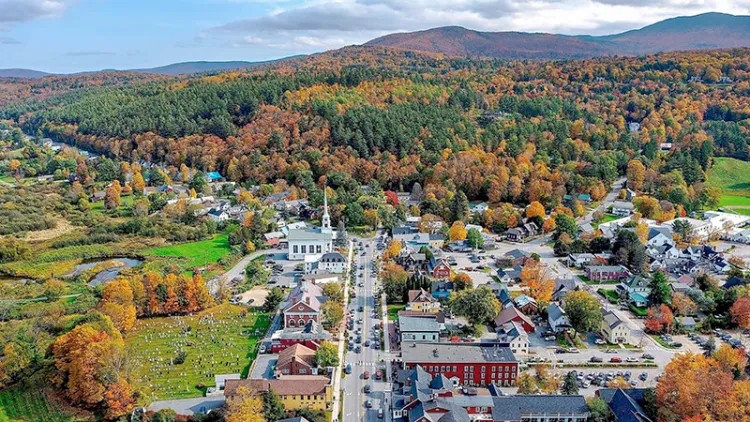
This project fills a critical gap in knowledge about rural travel behavior by creating a novel spatially detailed panel dataset. The dataset tracks changes in travel behavior over time, supporting an analysis of peoples’ responses to changes in transportation and land use systems. This research will help small and rural communities achieve deep reductions in GHG emissions by providing insights into how to leverage transportation infrastructure investments, technology, and policies to reduce GHGs while supporting economic vitality, mobility, and equity.
Principle Investigators: Dana Rowangould, Gregory Rowangould, Elizabeth Doran
Project Sponsor: National Science Foundation
Evaluating Heterogeneity in Household Travel Response to Carbon Pricing: A Study Focusing on Small and Rural Communities
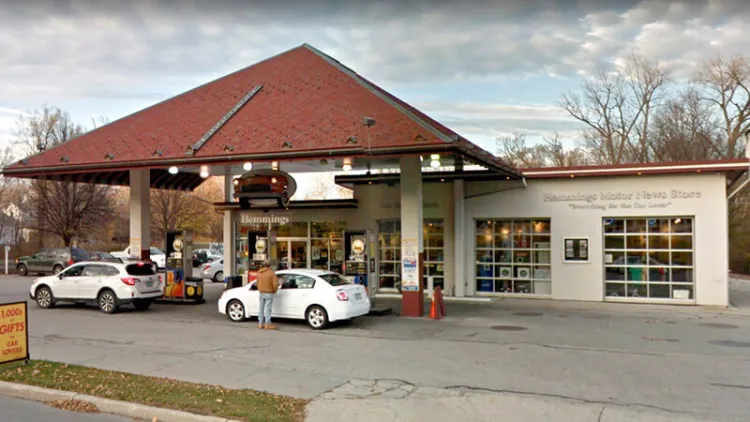
The aim of this research project is to collect new information about household travel behavior, how households may respond to increased transportation fuel costs, and information about real and perceived barriers to avoiding higher transportation fuel costs in diverse rural communities.
Principal Investigator: Gregory Rowangould
Project Sponsor: National Center for Sustainable Transportation
Related Publications:
Quallen, E., Clarke, J., Nelson, C., Rowangould, G., 2022. Comparing Travel Behavior and Opportunities to Increase Transportation Sustainability in Small Cities, Towns, and Rural Communities. Transportation Research Record 03611981221124590. https://doi.org/10.1177/03611981221124590 [author's final accepted manuscript https://scholarworks.uvm.edu/trc/281]
Evaluation of Travel Constraints and Travel Burdens in the U.S. and in Rural Zero-Car Households
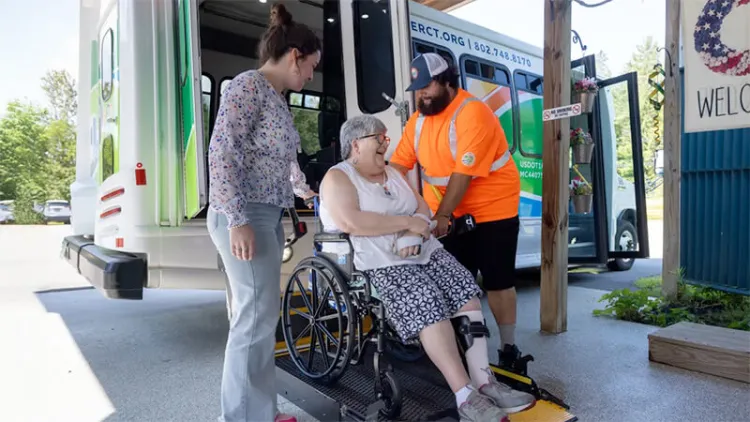
Transportation systems provide the means for people to reach desired destinations. The ability to travel varies widely, with many travelers facing constraints that cause travel burdens and reduce quality of life. These burdens can be greater in rural areas where many travelers face fewer transportation options and longer distances to destinations.
The research team will evaluate travel burdens in urban and rural populations using data from a large US survey, determining who experiences travel burdens and the factors that contribute to a greater likelihood of experiencing travel burdens in urban and rural areas. These results will be used to inform in-depth interviews with zero-car rural populations, who have a high potential for travel burden. The findings will be useful for researchers and transportation practitioners seeking to better address the challenges faced by rural populations in the US.
Principal Investigator: Dana Rowangould
Project Sponsor: National Center for Sustainable Transportation
Evaluation of Travel and the Built Environment in Small and Rural Communities
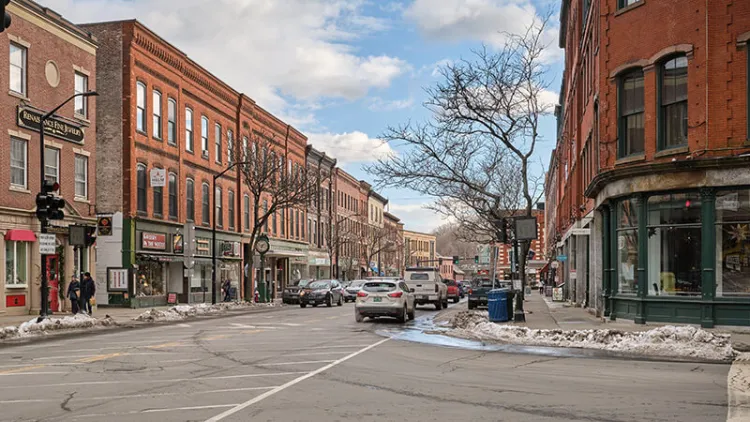
Achieving reductions in vehicle travel is challenging, especially in rural communities where low density and decentralized land uses contribute to vehicle dependence and long trip distances. This research will evaluate the relationship between travel and the built environment in small and rural communities across the US. The results of this research will inform GHG mitigation and transportation and land use planning in rural regions across the US.
Principal Investigators: Dana Rowangould
Project Sponsor: National Center for Sustainable Transportation
More about Evaluation of Travel and the Built Environment in Small and Rural Communities
Evaluating Equity and Effectiveness in Vermont's Electric Vehicle Purchase Incentive Programs
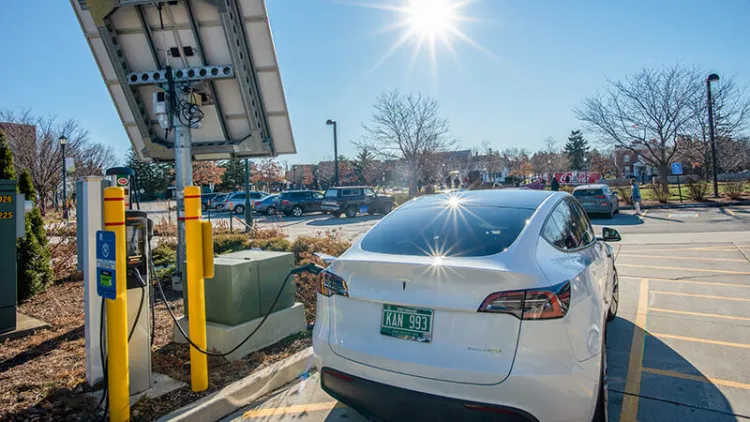
The project aims to inform the design of EV incentive programs, particularly in smaller and rural communities that have not been the focus of prior investigation and where the market penetration of EVs has been lower. The project will also contribute to a greater understanding of how incentive programs can be designed to improve program effectiveness and equity for lower income and rural households.
Principal Investigators: Parker King and Gregory Rowangould
Project Sponsor: University of Vermont
The Future of Rural Transit: Combining and Electrifying School and Public Transportation
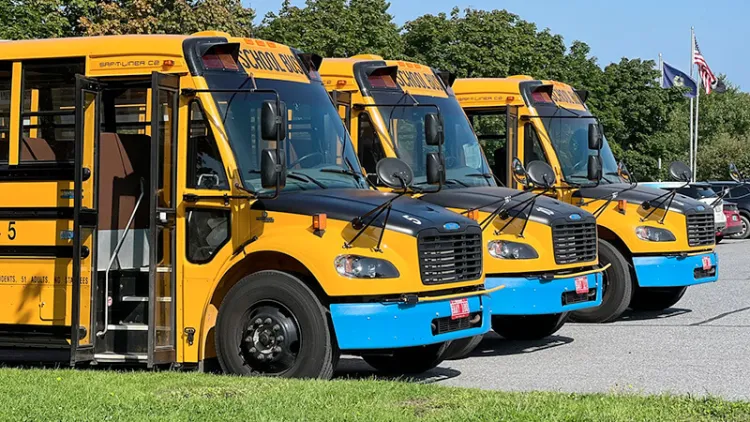
The project team will research and design a pilot to purchase and deploy small electric buses to serve 1-2 of Vermont’s rural school systems and their surrounding communities. The project will also include a detailed study to assess the opportunities and barriers of combining services: evaluating right-sizing vehicles, optimal service routes, and fleet sizes, all while drawing from fleet electrification experiences in Vermont and other states.
Project Team: Peggy O'Neill-Vivanco, Cara Robecheck, Justine Sears, and Jennifer Wallace-Brodeur
Project Sponsors: Energy Action Network and Vermony Agency of Transportation
More about The Future of Rural Transit: Combining and Electrifying School and Public Transportation
Additional resources:
VCC
Policy Plan PDF
Exposure-based Extreme Heat Vulnerability Mapping to Inform Adaptation and Mitigation of Extreme Heat Exposure Risk in Small Cities and Rural Settlements

This project will identify where people all across Vermont are exposed to excessive heat produced by transportation infrastructure, map areas of vulnerability (where there is higher heat and populations at greater risk of adverse health impacts from heat exposure), and help state and municipal agencies target solutions to the places and people that most need them.
Principal Investigators: Elizabeth Doran and Gregory Rowangould
Project Sponsor: NOAA